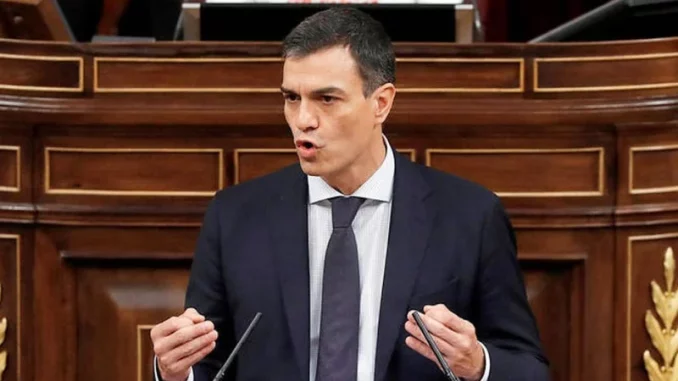
The position of the Spanish government in support of the Moroccan autonomy plan, as being “the most serious, realistic and credible basis” for resolving the dispute over the Moroccan Sahara, stems from Spain’s “genuine desire” to contribute “actively” to the settlement of this conflict which has lasted too long, said Spanish Prime Minister Pedro Sanchez on Wednesday.
“Spain has taken this decision with the full will to take a step forward” towards the settlement of this dispute, Mr. Sanchez told the Spanish Congress of Deputies.
On March 18, Spain officially endorsed, in a letter by the head of the Spanish Government Pedro Sanchez to King Mohammed VI, Morocco’s Autonomy Plan as the most serious and credible solution to end the decades-long dispute.
“The decision we have taken on the Sahara is a further step on the path that began 14 years ago when the Spanish government welcomed the autonomy plan presented by Morocco as a valuable contribution to the solution of a deadlocked conflict,” he pointed out.
“We are determined to help settle a conflict that has lasted half a century,” he said.
Spain “has reaffirmed and deepened its position because there is now a new opportunity to resume negotiations after the appointment of the personal envoy of the UN Secretary General, Staffan de Mistura,” he stated further.
After many years of conflict and status quo in the negotiation process, the Spanish government considers that the autonomy proposed by Morocco is the basis on which there are more possibilities to build a solution to the Sahara issue, stressed Sanchez, noting that his country “logically recognizes the efforts made by Morocco in this direction.”
“Spain’s position on the Sahara issue is in line with that of its European partners and many other countries”, he recalled, noting that the European Commission and the EU High Representative for Foreign Affairs supported Madrid’s decision.
In this connection, the President of the Spanish government recalled the support voiced by France to Morocco’s proposal for years, in addition to the recent support expressed by Germany to the Moroccan initiative, and the United States’ continuous support for the approach adopted by the North African Kingdom.
Moreover, all the resolutions of the United Nations Security Council since 2007 have welcomed the autonomy plan and the “serious and credible efforts” made by Morocco, he underlined.
In his address to the Congress of Deputies, Pedro Sanchez made it clear that relations with Morocco, a ”neighbor and strategic partner”, are an “affair of State that requires a State policy.”.
”The government is firmly committed to opening a new stage in relations between the two countries, with a clear and ambitious roadmap,” Sanchez stressed.
Morocco is “a neighbor and an indispensable strategic partner…Throughout history, the two countries have established human ties, agreements and relationships that have forged common interests”.
Thus, said Sanchez, the will of Spain is to establish with Morocco “relations that correspond to two neighboring countries with strategic importance in the areas of migration control, economic and trade relations and the fight against terrorism”.
By opening a new page with Morocco, ”we have taken the path of realpolitik to meet the challenges of the State, including stability, prosperity and security,” Sanchez said.
The Prime Minister’s statements reflect the position expressed by many Spanish officials and politicians who underlined that by backing the Moroccan autonomy initiative Spain wants to contribute to resolving this issue that has lasted too long.
